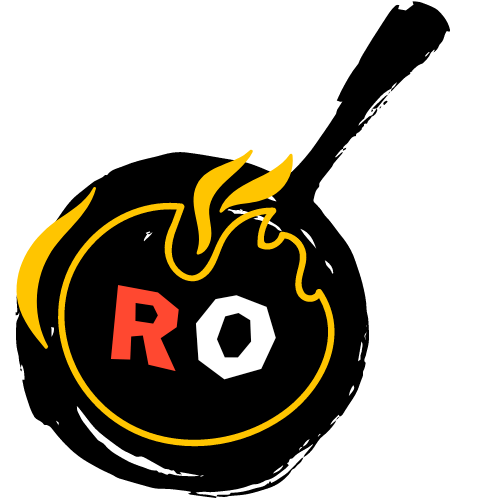As a restaurant owner, ensuring the safety of the food you serve is paramount. This blog post aims to guide you through the labyrinth of food safety regulations. We'll delve into the importance of these regulations, the consequences of non-compliance, and practical steps to ensure your restaurant meets all necessary standards.
Understanding the Importance of Food Safety Regulations
Food safety regulations exist to protect consumers from foodborne illnesses. These rules, set by health departments and food safety agencies, dictate how restaurants should handle, store, and prepare food.
Compliance with these regulations is not only a legal obligation but also a moral one. As a restaurant owner, you have a responsibility to ensure the food you serve is safe for consumption. This involves maintaining high standards of cleanliness, ensuring proper food storage, and training staff on food safety practices.
Non-compliance with food safety regulations can lead to severe consequences. These can range from fines and penalties to closure of your restaurant. In some cases, you could even face legal action if a customer falls ill due to foodborne illness traced back to your establishment.
Key Food Safety Regulations for Restaurants
There are several key food safety regulations that every restaurant owner should be aware of. These include temperature control, food handling and storage, cleanliness, and staff training.
Temperature control is crucial in preventing the growth of bacteria in food. Different types of food require different storage temperatures. For instance, cold food should be stored at 5°C or below, while hot food should be kept at 60°C or above.
Food handling and storage regulations dictate how food should be handled to prevent cross-contamination. This includes using separate cutting boards for raw and cooked food, and storing raw food below cooked food in the refrigerator.
Cleanliness regulations require restaurants to maintain a high standard of hygiene. This involves regular cleaning of all surfaces and equipment, as well as proper waste disposal.
Lastly, staff training regulations mandate that all staff members receive proper training on food safety practices. This ensures that everyone in your restaurant understands their role in maintaining food safety.
Implementing Food Safety Regulations in Your Restaurant
Implementing food safety regulations in your restaurant involves several steps. The first step is to familiarize yourself with the regulations. This can be done by attending food safety training courses or consulting with a food safety consultant.
Once you understand the regulations, the next step is to implement them in your restaurant. This involves setting up systems and procedures to ensure compliance. For example, you might need to invest in temperature monitoring equipment or implement a cleaning schedule.
Training your staff is another crucial step in implementing food safety regulations. All staff members should receive training on food safety practices and understand their role in maintaining food safety.
Regular audits are also important to ensure ongoing compliance. These can be done internally or by a third-party auditor. Audits help identify any areas of non-compliance and provide an opportunity to rectify them.
Consequences of Non-Compliance with Food Safety Regulations
Non-compliance with food safety regulations can have severe consequences. These can range from fines and penalties to closure of your restaurant. In some cases, you could even face legal action if a customer falls ill due to foodborne illness traced back to your establishment.
Fines and penalties can be substantial and can have a significant impact on your restaurant's bottom line. In addition to financial penalties, non-compliance can also damage your restaurant's reputation. This can lead to a loss of customers and ultimately, a decrease in revenue.
In severe cases, non-compliance can lead to the closure of your restaurant. This is usually a last resort measure taken by health departments when a restaurant poses a significant risk to public health.
The Role of Health Departments and Food Safety Agencies
Health departments and food safety agencies play a crucial role in enforcing food safety regulations. These organizations are responsible for setting food safety standards, conducting inspections, and taking enforcement action in cases of non-compliance.
Inspections are a key tool used by health departments to ensure compliance with food safety regulations. During an inspection, a health inspector will check various aspects of your restaurant's operations, including food handling practices, cleanliness, and staff training.
If a health inspector identifies any areas of non-compliance, they will issue a violation notice. This notice will detail the areas of non-compliance and the steps you need to take to rectify them. Failure to address these issues can result in further enforcement action, including fines and penalties.
Practical Steps to Ensure Compliance with Food Safety Regulations
Ensuring compliance with food safety regulations involves several practical steps. These include regular staff training, implementing a food safety management system, and conducting regular audits.
Regular staff training is crucial to ensure that all staff members understand food safety practices and their role in maintaining food safety. This training should cover topics such as food handling, temperature control, and cleanliness.
Implementing a food safety management system can help streamline your restaurant's food safety practices. This system should outline all the procedures and practices your restaurant will follow to ensure food safety.
Regular audits are also important to ensure ongoing compliance. These can be done internally or by a third-party auditor. Audits help identify any areas of non-compliance and provide an opportunity to rectify them.
Navigating the Food Safety Landscape: Final Thoughts
As a restaurant owner, navigating the food safety landscape can be challenging. However, understanding and implementing food safety regulations is crucial to ensure the safety of your customers and the success of your restaurant. By taking the steps outlined in this guide, you can ensure your restaurant meets all necessary food safety standards and avoid the consequences of non-compliance.

